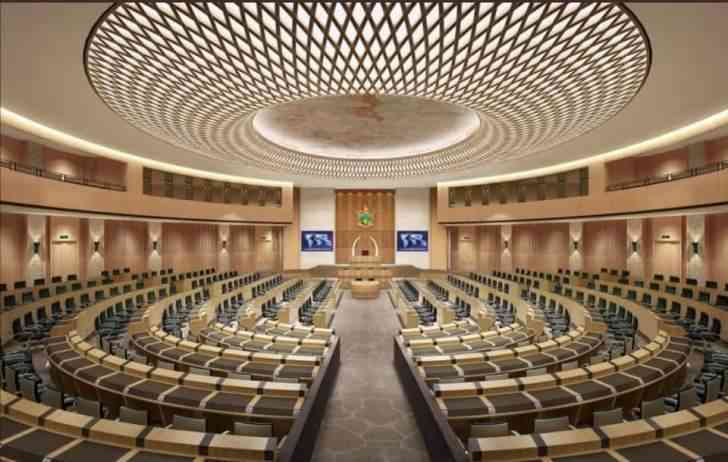
The 2023 election cycle is officially over.
Our president and two vice presidents took their oaths of office. 210 members representing the country’s two major political parties were sworn into office to form the 10th Parliament of Zimbabwe.
Focus now shifts from political campaigning and electioneering to issues of governance and policy.
Made up of 26 people, the new cabinet is the 11th since Independence.
Since 1980, there have been frequent changes in the composition and portfolios of successive cabinets and ministerial offices.
The current iteration is no exception.
There is the newly created Ministry of Skills Audit and Development.
The Ministry of Finance is now the Ministry of Finance and Investment Promotion.
- ED heads for Marange
- ‘Zimbos dreading 2023 elections’
- Zim headed for a political dead heat in 2023
- We’ll unleash our dogs: Zanu PF
Keep Reading
With a mix of new and established names, the new cabinet has the mandate of developing and implementing sound policies, being the public face of the government and the country on the international stage, and serving the best interests of the populace.
The beginning of their tenure comes at a challenging time globally.
Economic downturns and a cost of living crisis, the ongoing war in Ukraine, the increased impact of climate change (as evidenced by the recent floods in Libya and wildfires in Hawaii) and shifts in global power and diplomacy (with the African Union joining the G20 and the potential expansion of the BRICS alliance).
I do not envy this new cabinet.
They are tasked with steering Zimbabwe through these somewhat choppy international waters and addressing domestic needs.
Whilst I don’t have the expertise or insider knowledge to provide specific advice for each minister.
However, I am a citizen, and will be directly impacted by their undertakings.
In both my personal and professional capacity, I have had experiences trying to contact ministers, find out certain information or get clarity about certain statements.
It is often a difficult and time-consuming process — a process that would be much easier if this new government and cabinet took this opportunity to re-examine the state of their communication channels.
A crucial part of good governance and development is about having the right people in the right positions making the right choices.
Another crucial component of governance and development is clear communication across the board.
A communications strategy is how ministries keep citizens up to date with their activities and scope of their office, build trust and confidence in the cabinet as a whole and be part of the public image of the government.
There are some elements that the cabinet gets right, such as having accounts on sites such as X (formerly Twitter) and Facebook pages for ministers and their portfolios.
This makes it easier for citizens to access public officials and engage with them.
The same is also true of Members of Parliament and Parliament itself as a whole.
The government also has an official website that is meant to be “a single window access to the information and services being provided by the government of Zimbabwe for citizens and other stakeholders.”
However, there are also critical gaps in how individual ministers, their offices and the cabinet as a whole go about their interactions and delivery of information.
The biggest issue is consistency across communication channels.
Take the official website for example.
Although the list of ministries has been updated to reflect the current cabinet, the latest news and documents sections do not appear to have been updated.
The section dedicated to cabinet decisions links meant to redirect to Parliament and Senate websites are a dead-end.
When it comes to social media, X accounts for ministries of Finance, Transport, Home Affairs and Health and Child Care have large followings and are active on the platform.
However, other accounts have yet to be updated to reflect changes to the cabinet’s composition.
Tourism and Hospitality is its own ministry, separate to that of Environment, Climate and Wildlife.
Yet that change hasn’t been reflected in the creation of a separate account. In addition, some official ministry accounts are verified, whilst others are not.
On the surface, it may seem like unnecessary nitpicking.
After all, who cares if the government website isn’t up to date, and that social media profiles aren’t consistent across ministries?
There are other communication issues, such as the publishing of official statements online (taking poorly lit photos of a printed document and posting that on official accounts is an odd and labour-intensive method of releasing statements).
They point to two potential issues.
First, a lack of cohesion, coordination and, well, communication, amongst the different ministries.
Of course, each ministry has its own area of focus.
The Ministry of Housing cannot and should not do the same work as the Ministry of Industry and Commerce.
But they are all part of the same system, they cannot work totally independent of each other.
When it comes to something as important as official communication channels and modes of communication, it is beneficial for everyone to be on the same page and work from the same point of reference.
Not only does it promote connectedness between different portfolios (which in turn would make the government function better overall), it would also be a boost to public engagement and building a relationship Vision 2030’s grand ambition is to transform Zimbabwe into an upper middle-income country by 2030.
Part of that framework and vision should include how the administration of an upper middle-income country communicates and engages with its citizens, and how it conducts itself on public platforms.
After all, these online platforms aren’t limited to our borders.
For a country striving to position itself on the international stage, taking better care of how public officials present themselves and their work can go a long way in building that global image.
As the new Members of Parliament and ministers settle into their roles and get down to the business of governance, it’s up to them to consider the kind of relationships and image they want to build on local and international levels.
I wish them the best in their endeavours.
After all, their success in fulfilling their mandates would benefit the country as a whole, including me.
And a big part of that success is developing clear, coherent and consistent communications platforms and strategies.
*Makomborero Muzenda is a writer and analyst
These weekly articles are coordinated by Lovemore Kadenge, an independent consultant, managing consultant of Zawale Consultants (Private) Limited, past president of the Zimbabwe Economics Sociey and past president of the Chartered Governance & Accountancy Institute in Zimbabwe. Feedback: [email protected] or Mobile No +263 772 382 852










